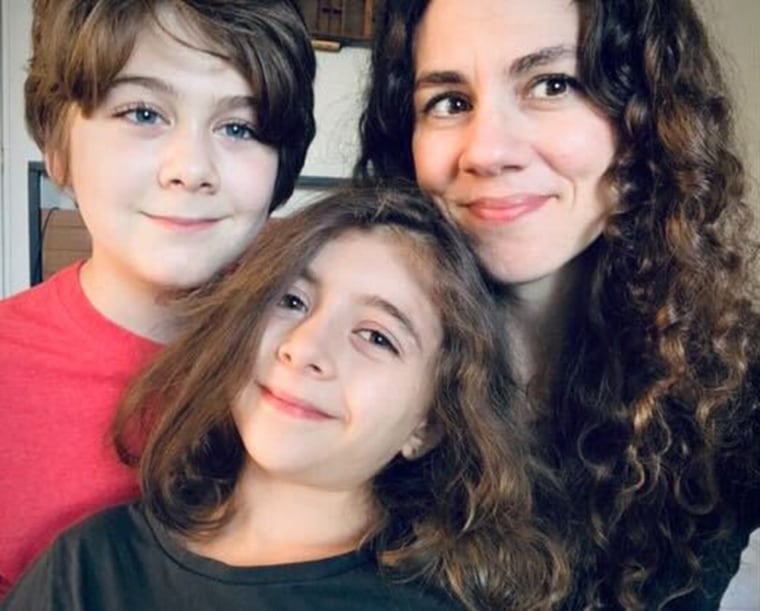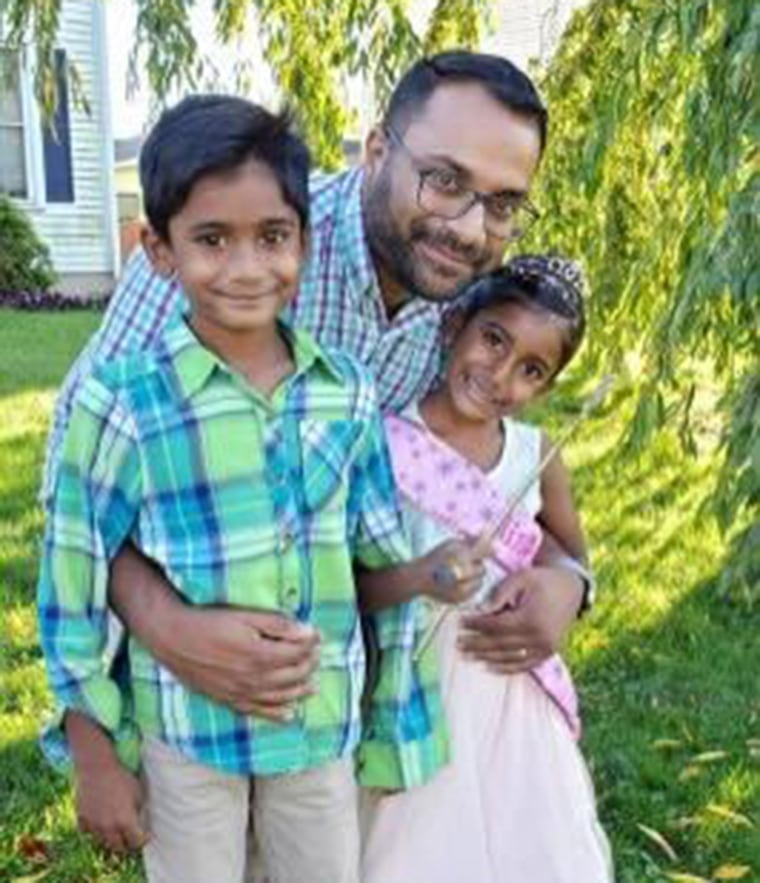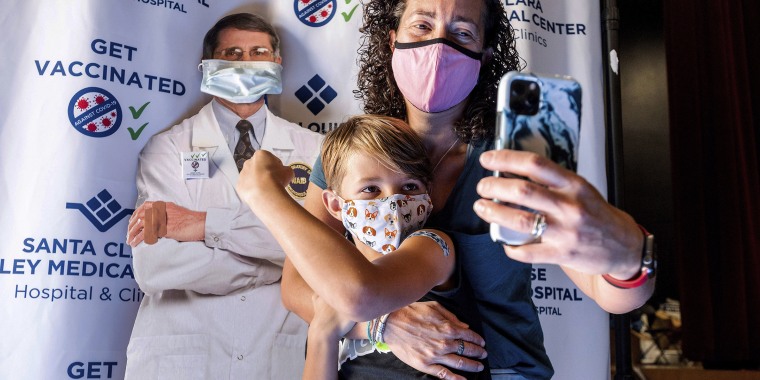On the morning after COVID-19 shots were recommended for children ages 5 to 11, Karen Bucher woke up at dawn to secure a vaccination appointment for her daughter, Margot, a social 8-year-old who has had just one indoor play date since the pandemic hit.
As Bucher, of Chicago, booked the slot, she felt tears welling up as she realized the significance of the appointment not just for Margot, but for the rest of their family, too.

Bucher, her partner and Bucher’s 13-year-old son are already vaccinated. While awaiting Margot’s turn to get her shot, the family lived nearly as cautiously as they did before.“We still had to protect her, so nothing changed. The kids haven’t been inside a restaurant or a grocery store since February 2020,” said Bucher, a medical illustrator for JAMA: The Journal of the American Medical Association. “I know the vaccines are very protective of hospitalization and death, but that doesn’t mean that we can’t give it to her if we were to get sick.”
With the Centers for Disease Control and Prevention’s endorsement last week of a COVID-19 vaccine for children in the 5 to 11 age group, parents of young kids say they feel a rush of relief and hope about their families’ futures.
A vaccine still has yet to be approved for children under age 5. But among the 28 million children ages 5 to 11 in the U.S., many parents, at last, see a path forward out of the pandemic.
Some are planning long-delayed family vacations. Others are looking forward to bringing children along again on mundane errands. And others are excited to bring back hallmarks of their kids’ childhoods that vanished with the pandemic: softball practice, gymnastics meets, soccer games.
“It’s a green light to start to figure out how we go back to a new normal,” said Bucher, who booked Margot’s first shot for this Thursday. “I think people who don’t have kids went through that transition months ago.’”
Chris Ware, the father of three kids ages 7, 9 and 11, will feel the relief the most each morning when he drops his kids off at their elementary school. The school has no mask mandate, so Ware, of Saginaw, Michigan, worries constantly about their health.
“It’s a little bit less likely that kids are getting to the point that kids are in the hospital, but I just couldn’t live with myself if that happened,” he said.
Ware’s kids will also get their first shots Thursday.
“It’s definitely going to be emotional for us,” he said. “I care about their well-being more than anything.”
‘I didn’t realize how much stress I was carrying around’
Some parents only felt the weight of how taxing it has been to get vaccinated before their children when they finally were able to schedule their kids’ shots.
“I didn’t realize how much stress I was carrying around,” said Krishna Mudumbi, a research scientist who lives in Wethersfield, Connecticut, and is the father of two children, ages 7 and 8.

The kids got their first doses Saturday. For Mudumbi, it was a step toward no longer worrying about whether they would get exposed to the coronavirus at school, whether he and his wife would have to change their work schedules to stay home with them if they were quarantining, getting COVID-19 tests before going to visit the grandparents and other inconveniences that had become regular parts of the family’s lives.
“There were just a lot of things that became a new concern in our minds, and now we’re seeing a little bit of normalcy,” Mudumbi said.
It’s a response many parents are likely to have, said psychologist Lynn Bufka, the senior director of practice transformation and quality at the American Psychological Association.
“We want to raise our children to be healthy adults, and for almost two years it has felt to many parents like there’s something bad and scary out there that can harm their kids that they can’t see, they don’t know where it is, and they have very few ways to protect their children from it,” she said.
“And then living with the day-to-day consequences of it — children not hugging their grandparents, children not having sleepovers, children’s schooling disrupted — not all parents want to get their children vaccinated, but for those who do, they feel like ‘there’s something I can do,’” she added.
Mudumbi’s kids will be fully vaccinated in time for the winter holidays, and they look forward to visiting family. They also plan to eventually go to New York City, a place the kids have long wanted to take a trip to.
A ripple effect for the rest of the family
It’s not just parents who will feel the ripple effect from their youngsters’ getting COVID-19 shots. In many households, siblings, too, will benefit.
Amy Eklund, of north Alabama, is the mother of three children, two of whom were already old enough to get vaccinated. Last weekend, she took her youngest child, Aaron, 10, to get his first shot.
That will open doors for Aaron’s siblings: his sister Hannah, 13, got her shot nearly six months ago and wanted to participate in her school’s chorus, but with Aaron still unvaccinated, Eklund was too nervous to allow her to join, fearful she might bring the coronavirus into their household.
“For me, it’s pure excitement and happiness and relief and just ‘yay, we’ve done it!’” Eklund said of getting Aaron his first shot.
The shot went well, she said. Aaron was nervous, but he said it hurt less than the flu shot he got a month ago.
“He is relieved,” Eklund said. “He is very excited to finally be done and not have to worry about getting sick.”
For Bucher, who, as a medical illustrator, has been closely following the research around COVID-19, having a fully vaccinated family means they’re doing their part to keep their community safe. It also means the return of activities they loved before the pandemic, such as going out for dinner.
And play dates will be back for 8-year-old Margot.
“Just to know that she has an added layer of protection very soon, it’s such a relief,” Bucher said. “I think that’s where the tears come from as much as the excitement: It’s just pure relief.”
This story first appeared on NBCNews.com.


